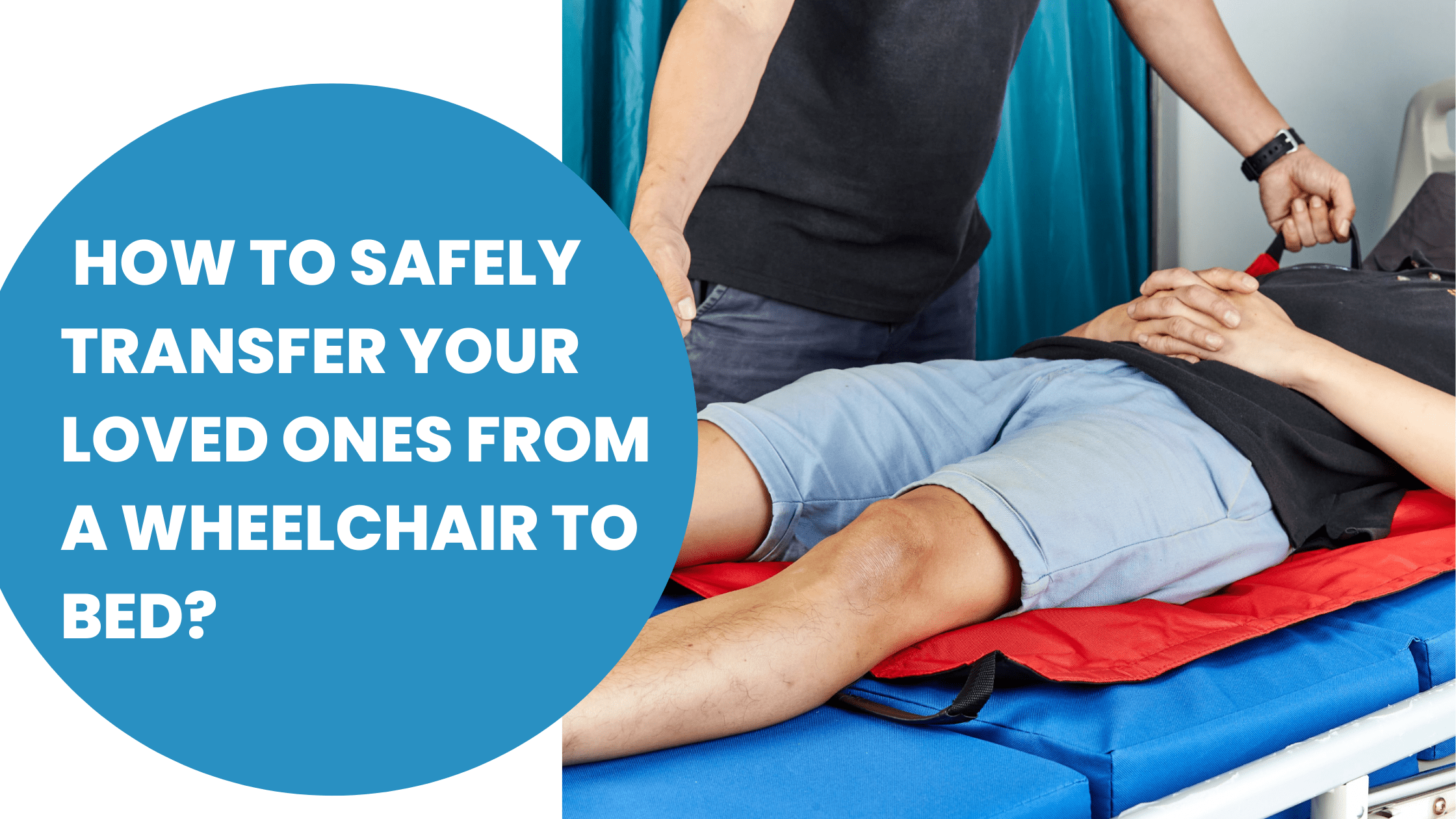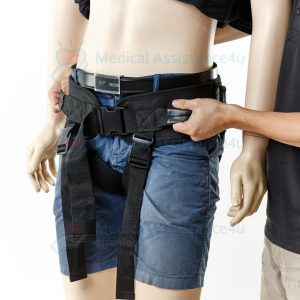How to Safely Transfer Your Loved Ones from a Wheelchair to a Bed?
- Medicalassistance4u
- June 22, 2022
- Mobility Assistive, Wheelchair

How to safely transfer your loved ones from a wheelchair to the bed: What to look out for and helpful tools
When our loved ones are ill and require assistance for mobility, we want to provide them with the best and safest care we can offer. However, as caregivers, we are not medically trained to take care of highly dependent individuals and without adequate knowledge on how to handle the process of transferring our loved ones to and from wheelchairs to the bed and vice versa.
Before transferring
Before attempting the transfer, it is essential to:
1. Plan and ensure the environment is clear and safe. To ensure there are no hazards or obstacles like loose wiring on the ground or fixed furniture blocking.
2. Identify the dominant side of the patient’s body. They will be able to assist with the transfer as much as they can
3. Positioning of wheelchair at 30 angle to the bed. After identifying the dominant side of the patient, position the wheelchair next to the bed, with the seat facing the direction where the patient will leave the bed.
4. Ensure the wheelchair is prepared for the transfer. Wheelchair with flip up armrest and removable footrest is perfectly suitable for safe transfer. Read more about wheelchairs and how to choose them for different users here.
5. Let the patient know that the transfer is going to be done so they can be prepared for the move or assist in as much as they can. It is important to empower and encourage the patient to help out as much as they can.
During transferring
During the transfer, both the caregiver and the patient must be ready for the move for a successful transfer.
Posture
- Caregiver back must remain straight and rely on their lower body muscle for heavy lifting to prevent lower back injury
Coordinated movement
- If the patient is able to move slightly or if there are more than one caregiver, it is important to coordinate the movement to ensure the safety of each individual during the movement.
Use suitable tools
Heavy duty cotton webbing transfer safety belt provides a secure hand hold for caregivers to transfer users from wheelchairs safely and more comfortably.
Waterproof transfer sheet that has 4 handles at the corners for better grip and safer transfer.
At Medical Assistance4u
With medically trained staff, our team at Medical Assistance4u can provide you with consultation services to assist you to find the most suitable tools and equipment..
Drop an enquiry via the form below or WhatsApp us at 90536727 now!





